Ideas are the lifeblood of politics. They are the reason a particular person will choose to belong to the Labour Party whereas another will choose to become a Conservative.
They are the difference between good schools and bad schools, a functioning NHS and a creaking, unsatisfactory service, an economy that hums along and one that labours in the slow lane. They are how we move forward as a society, chiselling out fresh answers to the old questions as well as working through solutions to the new ones. Politics, like life, does not stand still. At the heart of it all, its engine, is the clash of ideas.
There is much in the Tory leadership race to dislike. Both candidates are playing to the membership, committing themselves to extreme positions with little thought at this stage as to how those positions look to the wider country, or how a prime minister might deliver them.
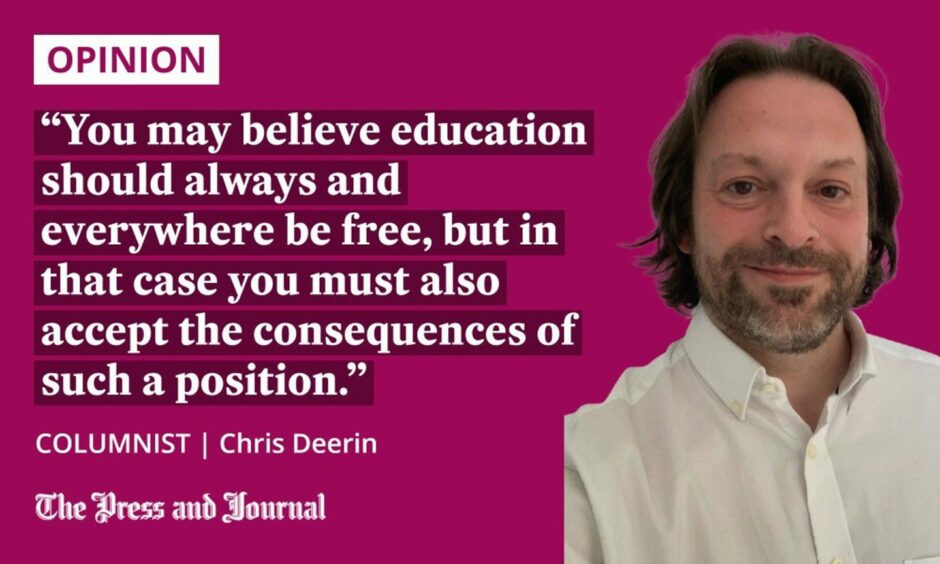
But still, there is at least a battle of ideas going on – over how to recharge the economy, over the nature and timing of tax cuts, about our relationship with the EU, about the cultural norms that have come to govern our society. The big British parties are good at this – at renewal and reinvention, at reapplying their old values to new scenarios.
If it is a messy process, then that is as it should be. Politics is also about winning arguments, about persuading enough people that your analysis and your prescription are better than the other guy’s. This is as true within parties as it is at general elections. If you can’t win the argument – if your ideas are found wanting – then you won’t get your shot.
Scottish-domiciled applicants are being refused a university place
The SNP are serial winners. Over the past 15 years they have consistently persuaded voters that they are more competent than the Holyrood opposition parties, and that they will stand up for Scotland at Westminster. They have convinced a sizeable part of the electorate, if not a majority, that Scotland would be better off independent.
And yet few would look to modern-day Scotland for a healthy, consequential battle of ideas. So dominant has the independence debate become that important subjects have been left to wither on the vine. Health and education reform, the economy, even transport and gender issues, have become entangled in the national question – they are judged on whether they will advance or diminish the case for independence rather than on the difference they will make to the population. Voters go to the polls driven almost wholly by their constitutional preference.
Extract from our report highlighting the 84% increase in those not getting into university in Scotland, compared with the 47% increase in successful applicants. Read more here: https://t.co/KM88XleX0G pic.twitter.com/IYlHFaa4r0
— reformscotland (@reformscotland) August 1, 2022
For someone like me who runs a think tank, this is far from an ideal state of affairs. Reform Scotland’s raison d’etre is to research and produce ideas that if implemented would, in our view, make a positive difference to the lives of Scots. At the very least, we want to encourage open debate in the political sphere. If you don’t like our ideas, what are your own?
In practice, I regret to say it doesn’t always work like that.
Yesterday, for example, we produced a paper looking at the funding of higher education and its impact on student numbers. We have established that under the current funding arrangements, where universities receive a set grant from the Scottish government, there is an artificial and growing cap on the number of Scottish students who are accepted to study. Since 2006 this has led to an 84% increase in the number of Scottish-domiciled applicants being refused a place.
Scottish politics is stuck in rigid ideological ways
There’s no point identifying a problem without proposing a solution. We suggest that in place of “free education”, graduates, who are highly likely to out-earn non-graduates throughout their working lives, pay the taxpayer back for a proportion of their fees when they earn enough to do so. Those whose financial benefit from going to university is small would repay little or nothing. Graduates who remain in Scotland working in certain sectors for set periods of time could have their repayments scrapped.
You may believe education should always and everywhere be free, but in that case you must also accept the consequences of such a position – that due to your purist preference many young, capable Scots are simply prevented from attending university. This does not make you the good guy.
Nicola Sturgeon’s government has dismissed our proposal. No surprise there. Scottish politics is stuck in rigid – and lazy – ideological ways. It lacks agility, curiosity and courage, and is sniffily dismissive towards those who seek to challenge the dismal status quo. What has been must continue to be, regardless of the conditions that now pertain.
The result is that our public services are declining at an alarming rate. We are falling behind not just those who pursue best practice, but even the mediocre. All the talk in the world won’t change that. It is, frankly, a crazy way to run a country.
Chris Deerin is a leading journalist and commentator who heads independent, non-party think tank, Reform Scotland
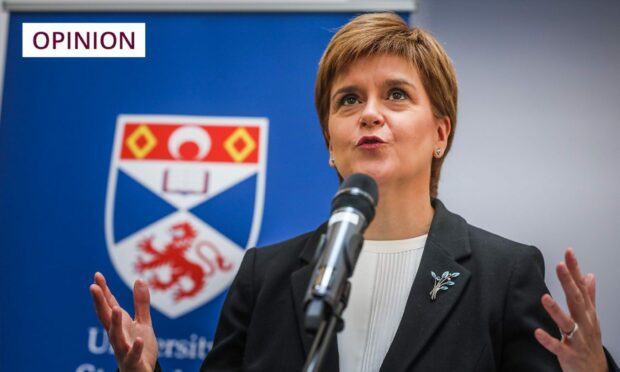
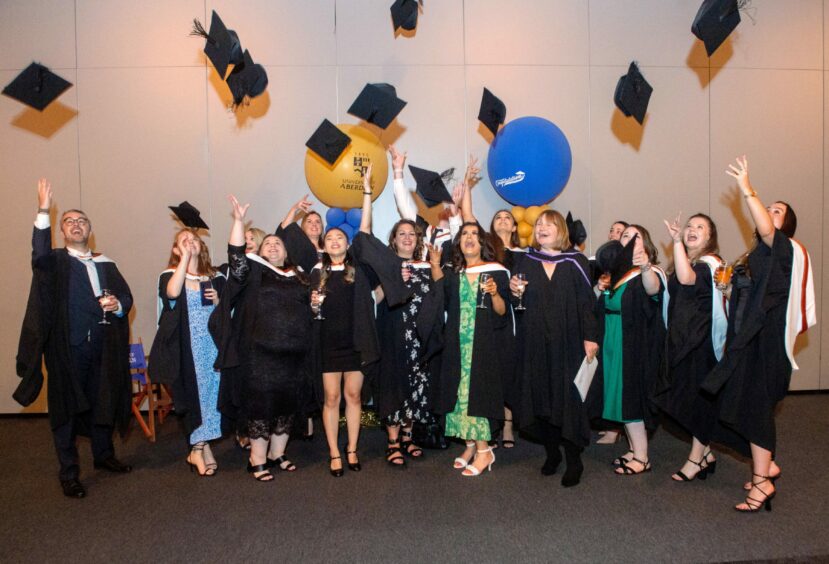
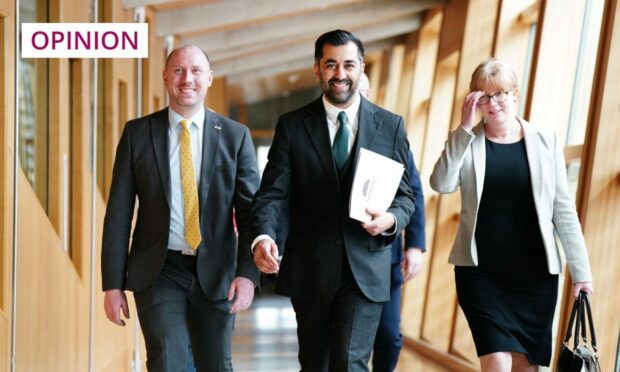

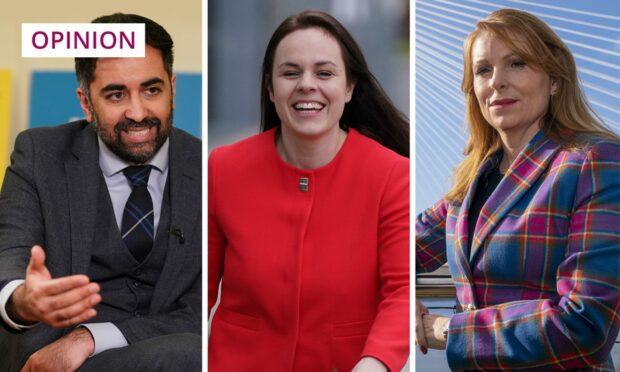
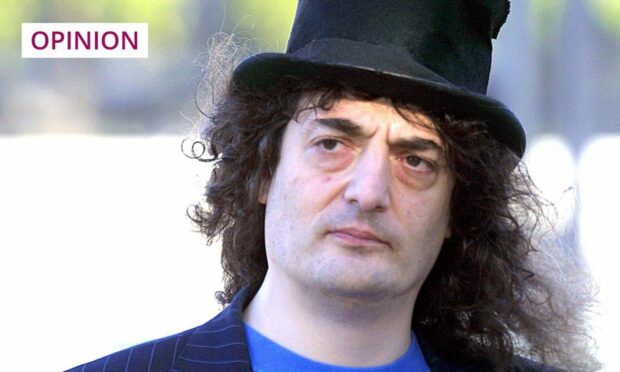
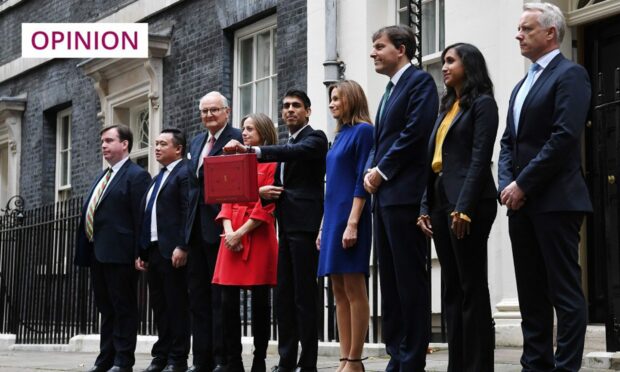
Conversation